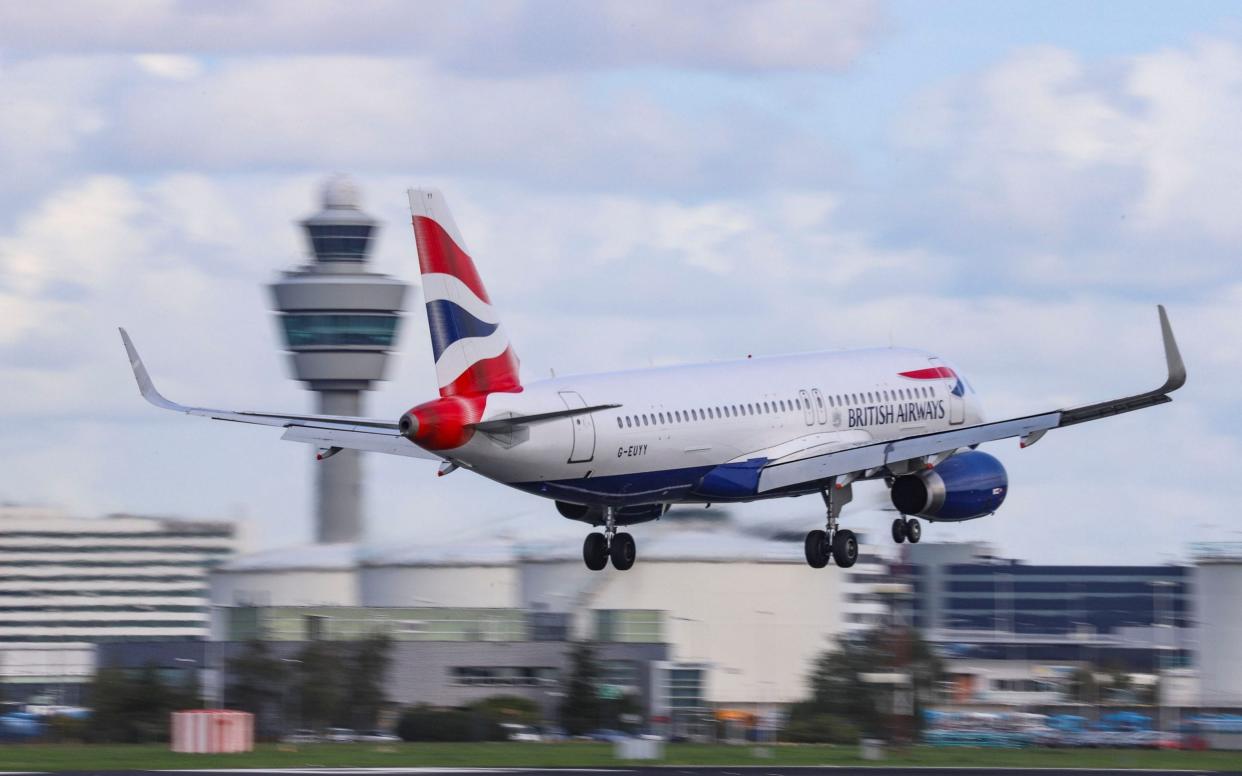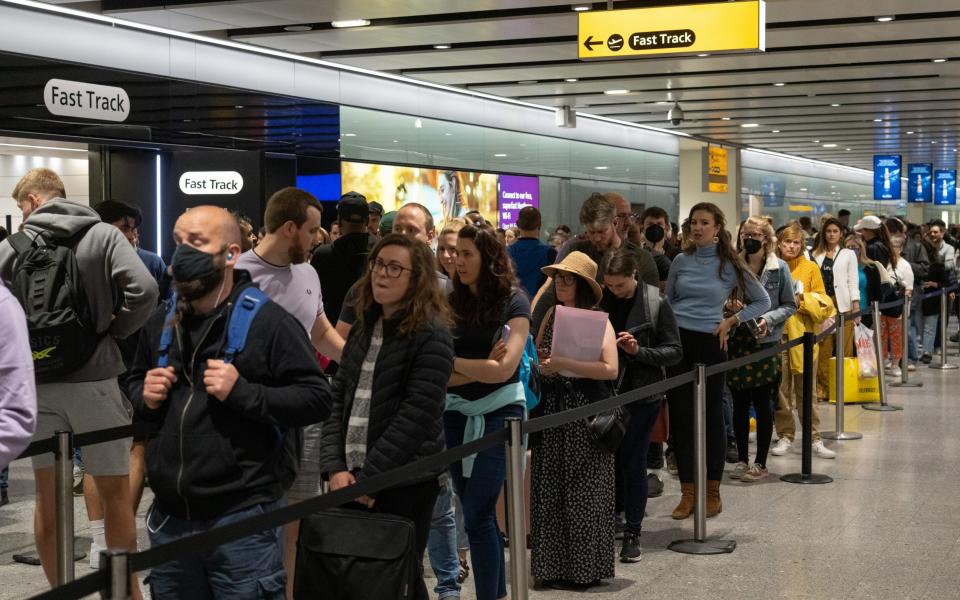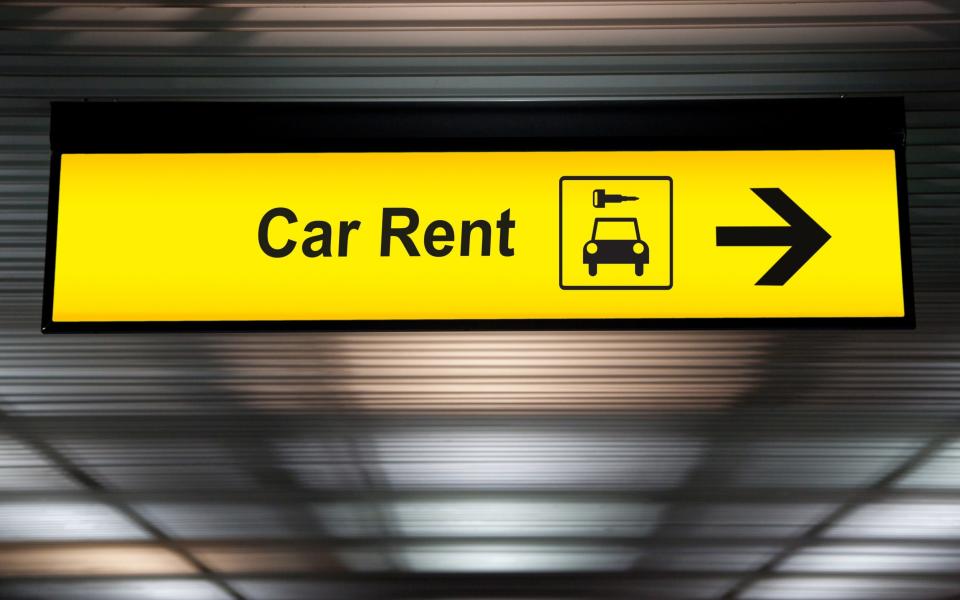The 10 problems that could ruin your 2023 holiday

Last year was a salutary experience for both travellers and the travel industry. The summer was peppered with thousands of cancellations and serious flight delays as airlines and airports struggled to get back to normal after the pandemic.
There were shortages of hire cars, and major problems caused by strikes, tech failures and record-breaking heatwaves. As bookings for this summer soar, what are the chances of a repeat? We assess the risks and threats to holidays and travel in 2023.
Disruption to flights
Risk rating: 4/5

Last summer’s chaotic sequence of cancellations and delays was blamed largely on a sudden increase in demand as pandemic restrictions ended at a time of severe staff shortages. UK airports are now confident the situation is under control – Heathrow, for example, has said it is on track to get back to pre-pandemic employment levels before the peak summer holiday period in 2023.
But Eurocontrol, the agency which advises on pan-European aviation policy, warned recently that there are still challenges across the sector in general – including supply-chain issues, possible industrial action, airspace bottlenecks, and technological changes.
All of this means that 2023 is set to be a hugely challenging year, it said at the end of last month. Meanwhile, Ryanair chief executive Michael O’Leary recently highlighted the impact of the war in Ukraine, which is restricting air traffic over Poland and also preventing long-haul airlines from flying over Russia. The extra pressure on German and northern Italian airspace may well cause issues in the summer, he warned.
The return of Covid red tape
Risk rating: 1/5

Travel restrictions as a result of Covid-19 have been lifted by most countries in the world, including most recently Japan and China (though China requires a negative PCR test within 48 hours of the arrival of your flight).
If you are unvaccinated, you’ll face a few hurdles in some countries beyond Europe – such as a negative test – and you still can’t travel to the US.
The risk for 2023 is that a new dangerous strain of Covid-19 emerges and new travel restrictions are implemented. I’ve rated the chances of this as low but, frankly, I’m guessing. Who knows what may happen?
Car hire shortages
Risk rating: 4/5

As I reported last week, there was a serious car hire crisis in many key holiday destinations last summer as a surge in post-pandemic bookings and a collapse in the number of rental vehicles available pushed prices to record highs.
The crisis has eased a little, but increased demand this year means that, in most destinations, peak-season prices will climb even higher in 2023 and there may well be some shortages again. In popular destinations, such as Tuscany, prices are up sharply over last summer and have more than doubled overall since 2019.
The Algarve saw a big jump in 2022 and another rise this year – it is now 47 per cent up on pre-pandemic rates. Even the more modest price increases – in Spain and Greece – are still up by 16 and 22 per cent compared with 2019. The answer for anyone travelling in high season is to book now, several months in advance – you will guarantee your car and almost certainly get a better price.
Passport woes
Risk rating: 2/5

In 2019, the turn around time to renew a British passport was just two to three weeks. Now you need to allow up to 10 and last year some 360,000 people had to wait even longer than this. Now, even though wait times have not improved, the cost of renewals has gone up.
The problem for travellers has been compounded by two things. First, many of us can’t risk being without our passport for 10 weeks, so have to pay nearly twice as much for a fast-track service. Second, post-Brexit travel rules mean you have to have at least three months’ validity on your document on the date you leave the EU. So passports have to be renewed earlier than before.
Post-Brexit queues
Risk rating: 3/5

Because the withdrawal agreement signed by the Government limits the amount of time we can now stay in the EU, all British passports have to be checked and stamped manually.
This has caused significant queues for UK citizens arriving at peak times in many European ports and airports – and it is often hard to predict just how much of a wait you will have.
EU proposals to introduce in May a new Entry/Exit System (EES), which will automatically register and track visitors from countries outside the Schengen Area, was expected to speed things up at airports – though there were concerns that it would actually cause more delays at ferry ports. However, this has now been postponed until at least the end of the year.
Spiralling costs
Risk rating: 5/5

Back in November I predicted a sharp increase in flight and holiday costs for this year. Sadly, that prediction has been proven right, and in spades. A sharp increase in demand has already pushed up prices significantly.
An investigation just published by Which? has found that the cost of booking a summer package holiday has gone up by an average of more than 19 compared to the same booking period last year. Out of six popular destinations Greece has seen the steepest rises (up 30 per cent), while holiday costs to Italy, Spain and Turkey have seen prices go up by a fifth or more.
Meanwhile, according to the Office for National Statistics (ONS) the cost of air fares rose by a terrifying 44 per cent last year, the largest rise since records began in 1989.
IT glitches
Risk rating: 4/5

Two weeks ago all flights across the US were suddenly grounded for two hours because of a glitch in its national air traffic control system caused by a corrupted file. Some 10,000 flights were delayed and 1,300 had to be cancelled.
It was the latest in a long line of IT outages to affect travellers. In October, cyber hackers knocked several major US airports offline. Last summer all flights at Gatwick were grounded by a glitch in the air traffic control system and, earlier in the year, British Airways suffered three major outages in less than four weeks.
Aviation – which runs on complex and sometimes dated IT systems – is highly vulnerable to such events. Will we see more this year? Almost certainly.
Extreme weather
Risk rating: 3/5

Last summer was a scorcher – and not in a good way. In Britain, we had our hottest day ever on July 19 when Coningsby in Lincolnshire hit 40.3C (104.5F). This was a huge increase on the previous record – temperatures had never before passed the 100F mark in the UK.
Europe had it even worse, with three intense heatwaves across France and the south of the continent. Overall records were broken in 12 different European countries, there was widespread droughts and major issues with wildfires. The Met Office reported recently that climate change meant that such events are now far more likely.
Obviously such extremes are most immediately serious for the local people who have to endure them. But they will also impact tourism. Last July, Luton Airport had to close its runway because the tarmac was melting in the heat, and there was widespread disruption on the railways because tracks buckled. We can only hope for cooler weather this summer.
Strikes in the UK
Risk rating: 5/5

Among the disputes which resulted in strike action last year were the Border Force strike at six key airports and ports over the Christmas period, the baggage handlers’ strike at Heathrow in November and several national rail stoppages. Rail workers and civil service disputes remain unresolved and we are about to see more rail stoppages on February 1 and 3, with a major civil service strike also taking place on February 1 – including further action by Border Force staff.
Hopefully, a resolution will be found, but given the entrenched bargaining positions, it seems unlikely that we will escape further disruption in the transport sector this year.
Strikes in France
Risk rating: 4/5

The French tradition of fighting for their rights by taking direct action is hardly new. Its roots are in the 1789 revolution. The problem for us is that transport is a favourite target, and that affects not just the French themselves, but very often tourists too. Last Thursday’s general strike, which hit both Eurostar and ferry services, may well be repeated.
But the biggest threat to travellers are French air traffic control strikes, because so many flights to and from Britain use French airspace. I had fights cancelled because of strikes in both May and September last year. There has been a truce since then, but last week Michael O’Leary of Ryanair predicted more such strikes this summer.


